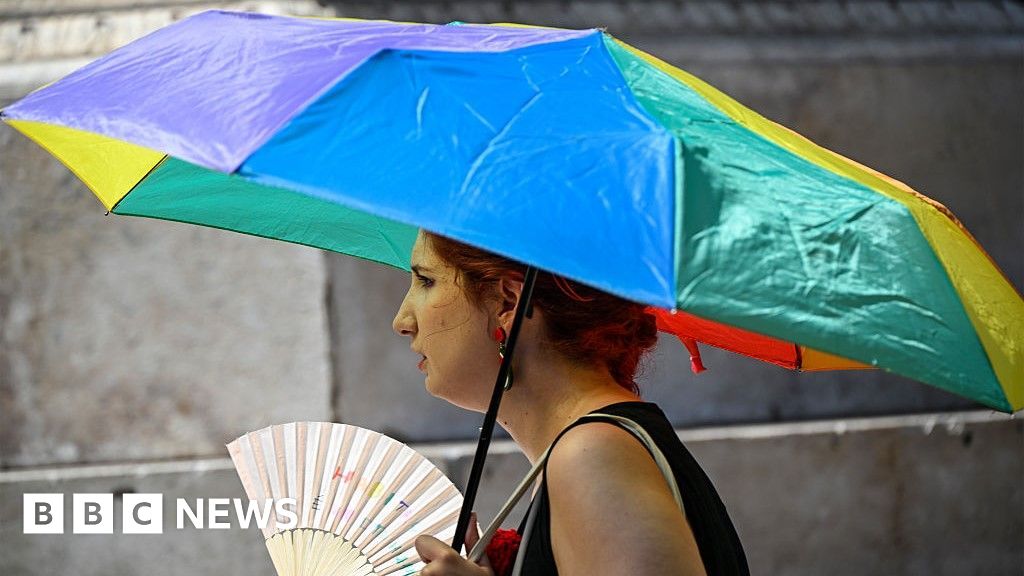By Kathryn Armstrong
Countries in and around the Balkans have also been struggling with the intense heat, although temperatures have begun to cool slightly.
In Turkey, firefighters continue their efforts to put out hundreds of wildfires that have broken out in recent days.
A fire in the Seferihisar district, 50km (30 miles) south-west of the resort city of Izmir, is being fuelled by winds and has already destroyed around 20 homes and some residential areas have had to be evacuated.
Wildfires have also broken out in Croatia, where severe heat warnings are in place for coastal areas.
Temperatures in Greece have been approaching 40C for several days and coastal towns near the capital Athens last week erupted in flames that destroyed homes – forcing people to evacuate.
On Wednesday, Serbia reported its hottest day since records began, while a record 38.8C was recorded in Sarajevo, the capital of Bosnia and Herzegovina on Thursday. In Slovenia, the hottest-ever June temperature was recorded on Saturday.
The temperature in North Macedonia’s capital, Skopje, reached 42C on Friday – and are expected to continue in that range.
While the heatwave is a potential health issue, it is also impacting the climate. Higher temperatures in the Adriatic Sea are encouraging invasive species such as the poisonous lionfish, while also causing further stress on alpine glaciers that are already shrinking at record rates.
While it is hard to link individual extreme weather events to climate change, heatwaves are becoming more common and more intense due to climate change.
